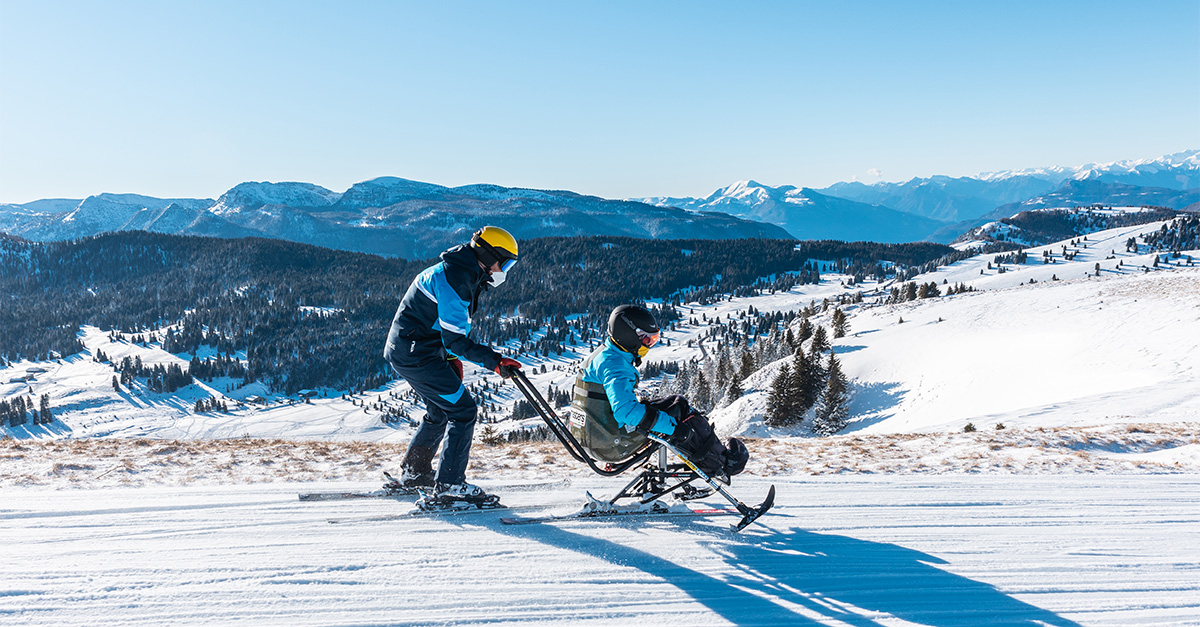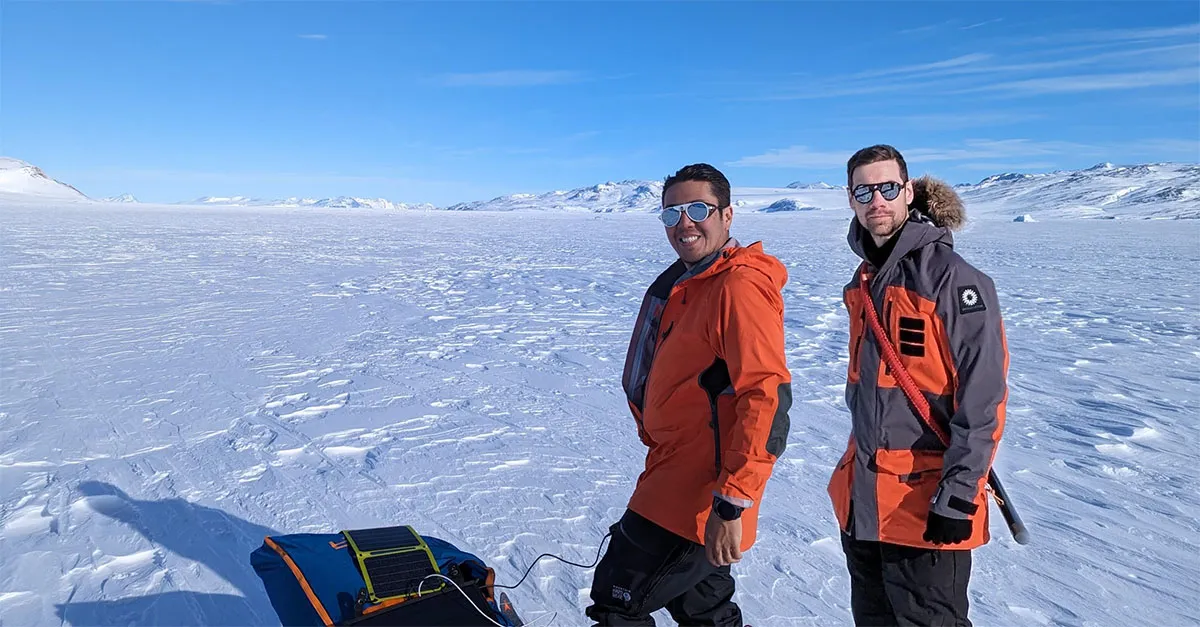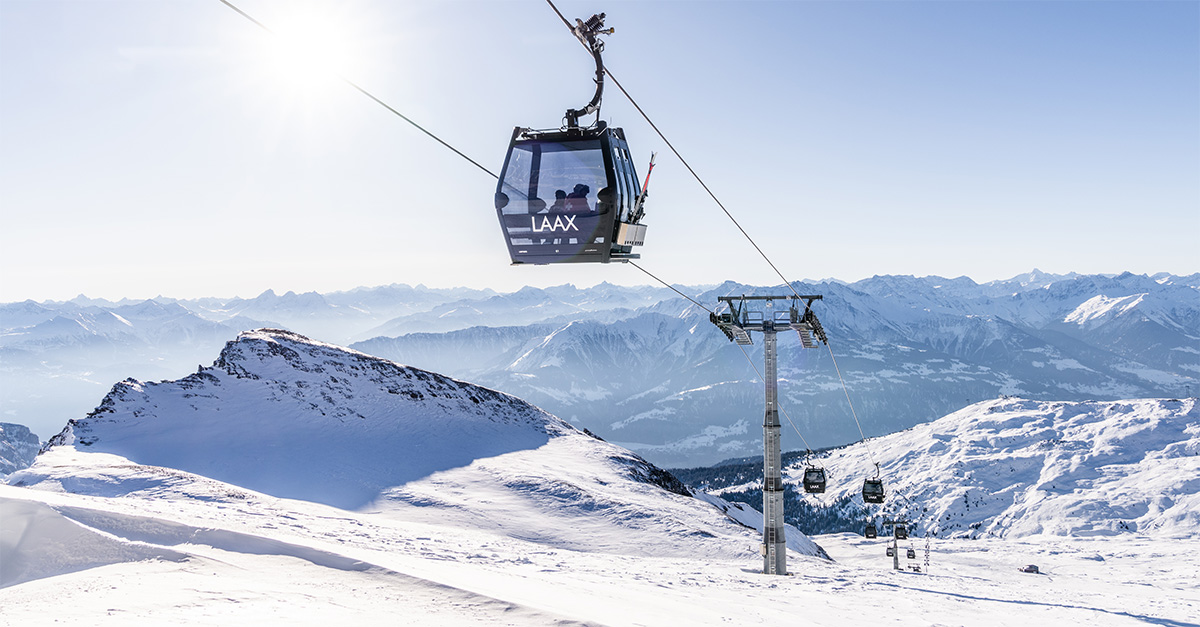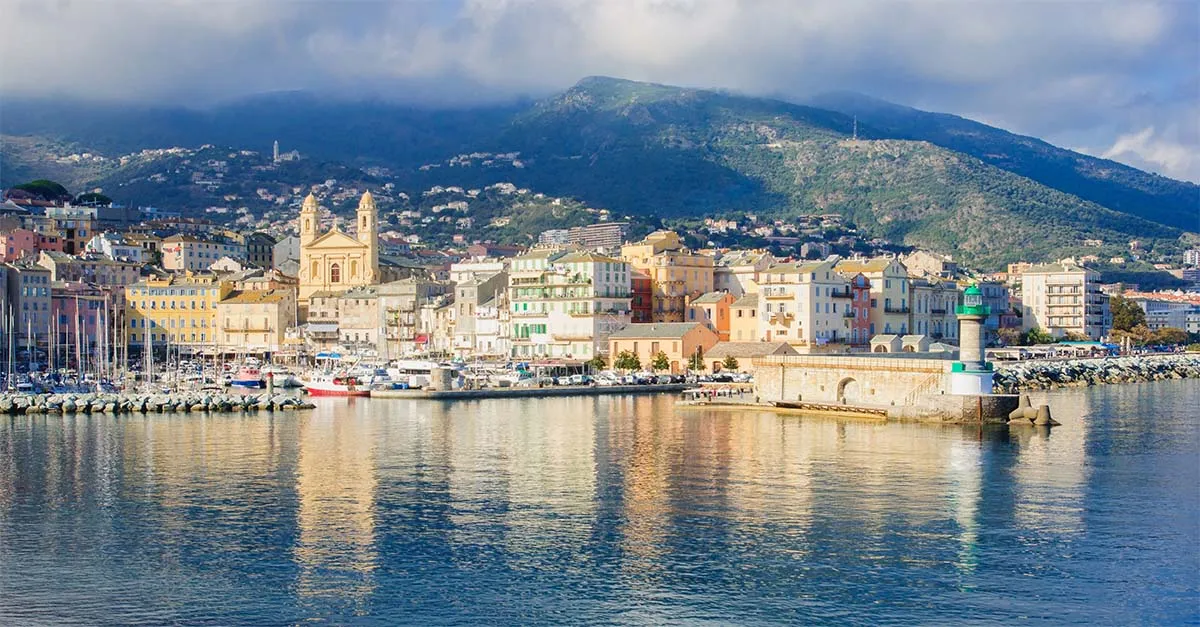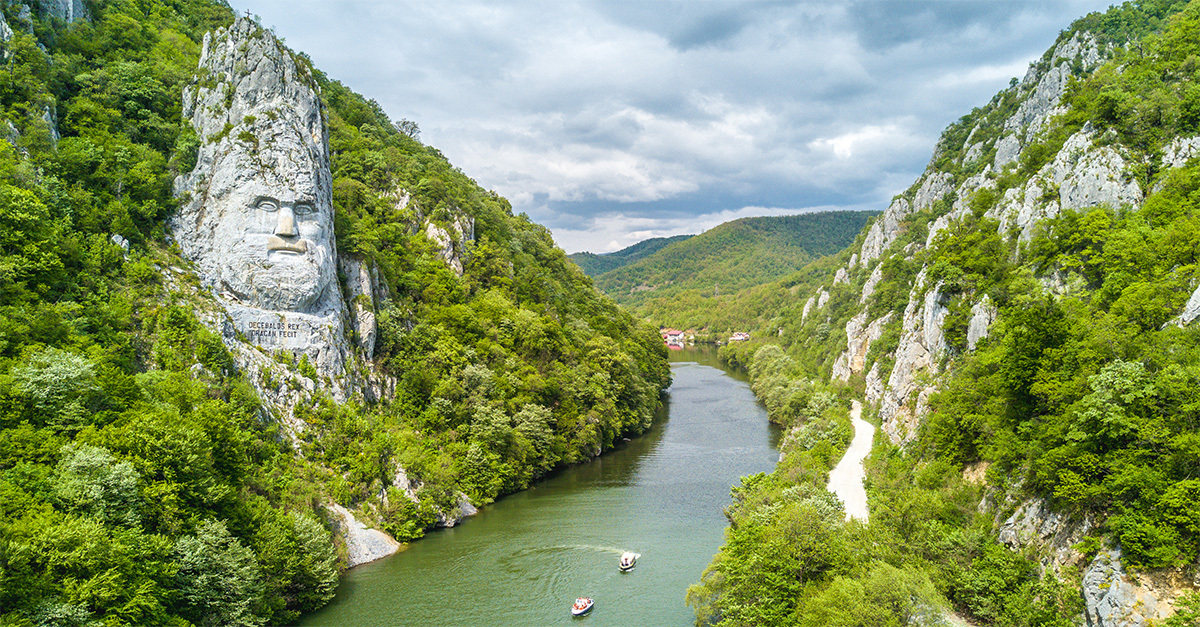You are viewing 1 of your 2 free articles
How to make holidays wheelchair-accessible, from ski trips to safaris
Ski, sail or safari? Alice Barnes-Brown finds out how to tailor the most popular holiday options to be accessible to wheelchair users and those with limited mobility
Bringing in new clientele is the key to growing your business – so what if you could tap into a market that makes up a quarter of the UK population, but is often overlooked and under-served in travel?
The latest UK government data reports 16 million people – 24% of the population – are living with a disability, and limited mobility affects nearly half (47%) across all age groups.
Yet with increasing awareness of accessibility needs around the world and recent innovations in adaptive equipment, even the most active trips can be tailored to meet the needs of wheelchair users or those with limited mobility – by mainstream as well as specialist suppliers.
Whether it’s a simple city break or an all-out adventure, we look at how to transform some of the most popular types of travel into an access-all-areas escape.
Wheelchair-friendly beach holidays
Accessibility in sunny destinations goes beyond lifts and ramps – look for hoists to get in and out of pools, beach wheelchairs and wheelchair-friendly boardwalks.
Tui has partnered with AccessAble, an organisation that works with about 1,000 disability groups, to create detailed accessibility guides. Some 200 hotels have been surveyed so far – with another 200 to follow this year – to provide information such as images showing accessible rooms, public areas and pool access.
An ‘accessibility filter’ on Tui’s website also makes it easier to find hotels with detailed information, which agents can review with clients.
Sue Bradley, Tui’s UK and Ireland director of customer experience, says: “Since 2022, accessible holiday bookings have grown by 56%, so it’s more important than ever to make travel easy for all our customers.”
Specialist operator Enable Holidays also offers beach breaks in destinations from Majorca to Mexico, which always include adapted transfers and accommodation with wheel-in showers and grab rails.
Adapted ski
Fancy carving up powdery snow on the slopes? Sit-down ski equipment and specially trained instructors are becoming more widespread at ski resorts around the world, along with a growing range of accessible accommodation to make the après-ski inclusive too.
This year, the Italian region of Trentino – featured by ski specialists such as Skiworld – launched a ‘Trentino for All’ initiative, which points visitors to modified lifts, special instructors and accommodation with disabled parking, lifts and more.
The Val di Sole ski area in western Trentino also has an ambitious target of becoming barrier-free for those with motor, sensory and cognitive disabilities. The Dolomiti Express, an electric train that connects the valley’s major resorts, is already fully accessible and Val di Sole’s eight ski schools all have instructors qualified to teach disabled skiers.
Two mono-skis with special seats and dual-piloted skis are also set to arrive soon, meaning people without the use of their upper or lower limbs can hit Trentino’s slopes independently.
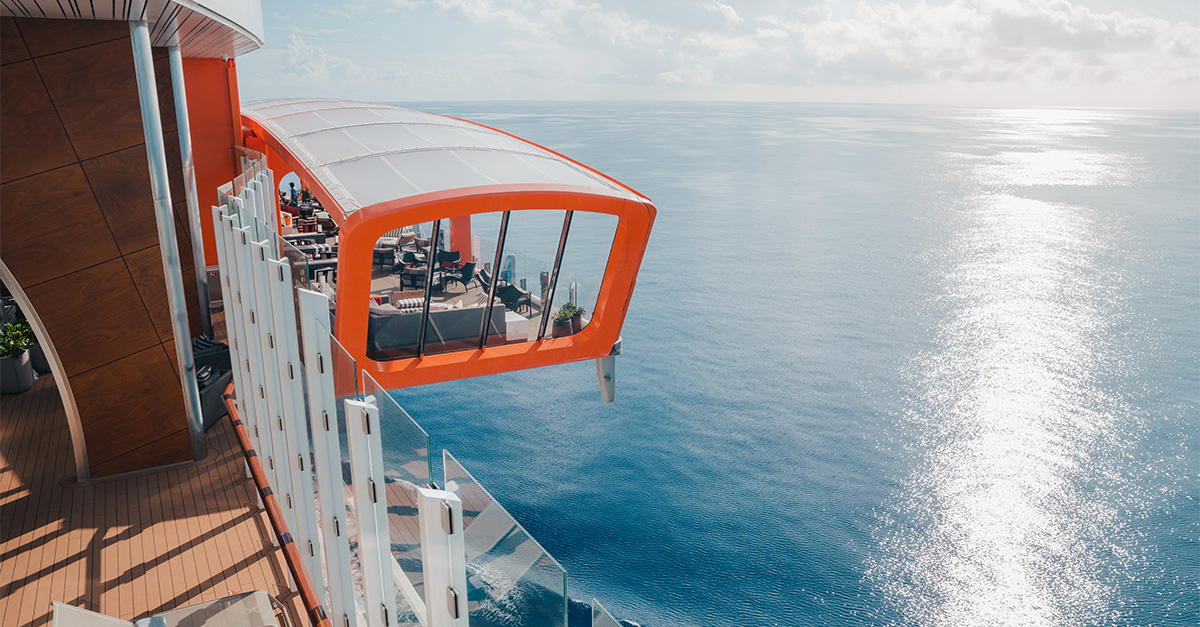
Accessible ocean cruises
Cruise ships are designed with mobility in mind given the proportion of older travellers and requirement for ships sailing in US waters to comply with the Americans with Disabilities Act – so an ocean cruise is a natural fit.
Public spaces are usually large (good for manoeuvring wheelchairs), many lines including MSC Cruises and Royal Caribbean are incorporating more accessible cabins than ever on new-build ships and there are numerous ex-UK sailings for those who don’t want to fly.
Celebrity Cruises ships’ accessible staterooms feature wider doors, roll-in showers, grab bars, ramped thresholds and a 5ft turning radius. Its Edge-class vessels also have a particularly helpful feature: the Magic Carpet, a moveable platform that enables wheelchair-accessible tendering, a breakthrough in the cruise world.
Princess Cruises likewise features wheelchair-friendly excursions in the Caribbean and beyond, while its Alaska ‘cruisetours’ include accessible rooms in its wilderness lodges and Midnight Sun Express railcars.
If clients are keen to cruise, book early as accessible cabins tend to sell out. Communication is also key – if notified in advance, the line can generally provide boarding and disembarkation help and wheelchair-friendly transfers.
Limited mobility on river cruises
River cruising can be trickier for those with mobility needs due to narrow gangways, smaller cabins and sun decks without lift access, plus some of the historic towns and cities along Europe’s rivers have steep, cobbled streets. But like their ocean-going counterparts, many river cruise lines cater well for people with limited mobility.
CroisiEurope, for example, offers adapted cabins with wider doors and special in-room equipment. On its three-deck ships, a lift provides access to all floors (except the sun deck), while two-deck vessels have some cabins on the same level as the public spaces.
However, most river cruise lines advise passengers with limited mobility to bring a caregiver who can assist them on and off the ship – not only for boarding and disembarkation, but also for shore excursions – so make sure clients are aware of what to expect.
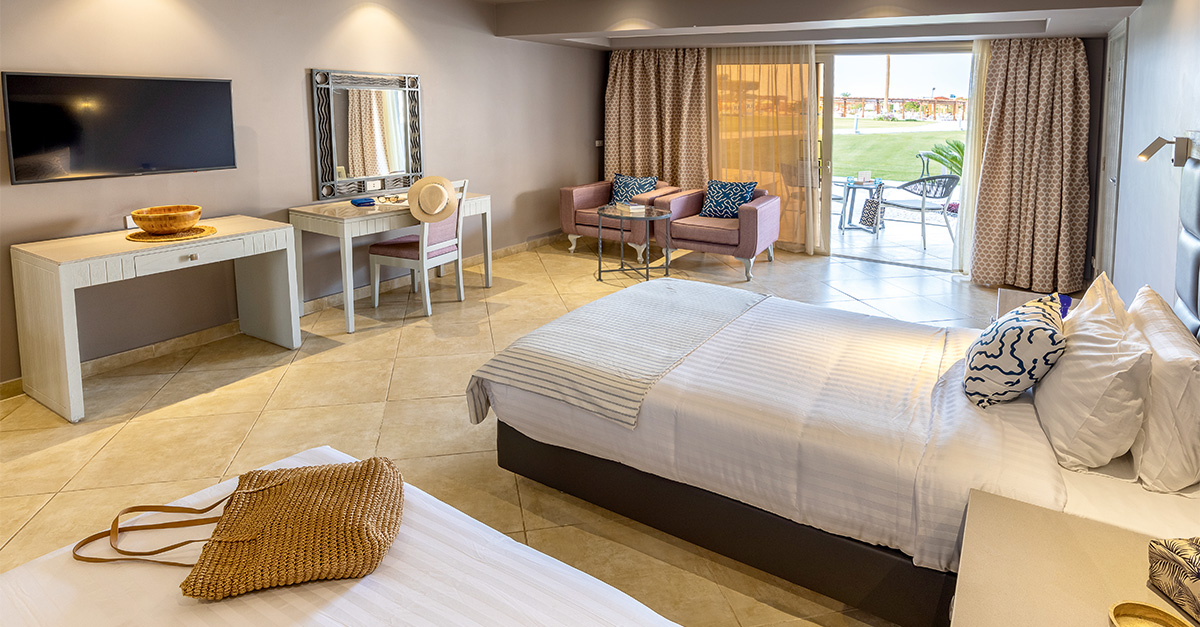
Barrier-free city breaks
Barrier-free travel can be easier to come by in cities. In Germany, it has long been a priority, with lush (and partially paved) urban parks, wide shopping boulevards and forward-thinking galleries and museums that are accessible to all.
Hamburg, home to a fascinating former factory district and cool canals, is one of the best examples, with most transit options having ramps and seating areas for wheelchair users and a selection of hotels that have won numerous accessibility awards.
They include the 325-room Scandic Hamburg Emporio, which can source care beds and other equipment from medical suppliers for those with additional needs. Even the city’s Christmas market at Spitalerstrasse is fully accessible, with no steps, plus accessible toilets and public transport.
Step-free safaris
Accessible accommodation and vehicles in safari destinations have improved in recent years, so clients with mobility needs can still experience the red sands of the Kalahari or spot big cats in the Masai Mara. If they can transfer into the front seat of a safari vehicle, then they may require relatively few modifications; if they are full-time wheelchair users, adapted vehicles that open at the rear for roll-in access may be required.
South Africa is leading the charge for barrier-free safaris as its national parks supply detailed accessibility information online, which can help agents plan a trip. It is also home to some of the only malaria-free national parks and game reserves in Africa – another important consideration for travellers who have additional medical conditions or require medication that affects their immune system.
Accessible adventure holidays
Tasting different foods, journeying across changing landscapes and taking on adrenaline-pumping activities: adventure travel isn’t off-limits. A road trip in a wheelchair-friendly vehicle around the rugged landscapes of Iceland’s Golden Circle can be arranged with car hire companies such as Hertz, with wooden decking offering manual wheelchair access at key spots including Geysir, Gullfoss, Thingvellir and Skógar.
Even more-challenging historic sites such as Machu Picchu have been opened up to manual wheelchair users in recent years with the help of expert operators (plus a travel companion, as some areas still require assistance).
Adventure specialists such as Responsible Travel and Intrepid Travel work with agents to discuss the client’s specific needs, assessing whether an existing itinerary can be adapted or whether they will require a tailor-made trip to eliminate inaccessible places.
Tara Kennaway, senior product manager at Intrepid Travel, says: “One customer, Morag, who was left disabled after a hit-and-run and didn’t think she could ever travel again, has now joined three Intrepid tours. She says the support of small-group travel, local operations and leaders helped her to explore the world by herself again.”
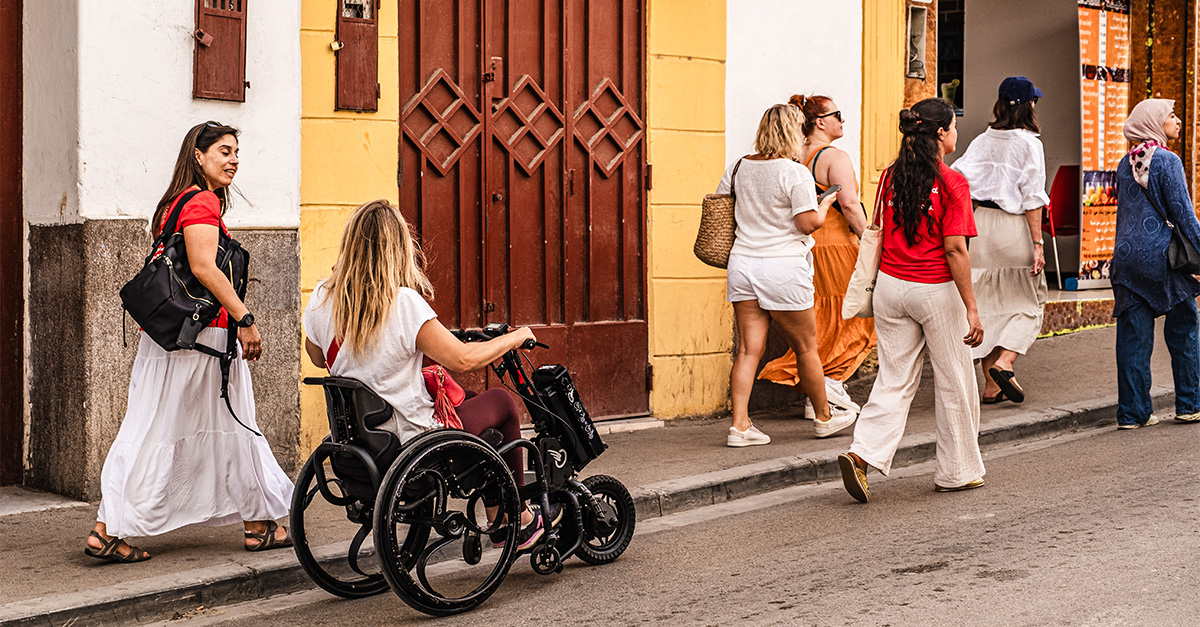
Book an accessible holiday
A 10-night Cape Town and Pilanesberg Safari (with guide) and Sun City with 2by2 Holidays costs from £3,295, based on two sharing. Incudes B&B accommodation, transfers, some meals, wheelchair-accessible safaris and excursions.
2by2holidays.co.uk
EasyJet holidays offers three nights at the Scandic Hamburg Emporio on a room-only basis for £384 per person and flights departing Manchester on December 9.
easyjet.com
Ask the expert

Claire Farley, managing director, 2by2 Holidays
“It is important to book well in advance for accessible holidays (at least nine to 12 months), as the availability of wheelchair-accessible hotels, vehicles and experienced guides is restricted. The key points agents need to know include the client’s disability – whether the person has upper body strength, so can transfer into a regular vehicle, or do they need a wheelchair-accessible vehicle? Do they use a manual or power wheelchair? Power chair users have far fewer options, so find this out and be careful not to promise something that can’t be delivered.”
Top tip
Take OTT’s Introduction to Selling Accessible Travel course to learn more about how to plan a journey for clients with additional needs.
PICTURES: M Gober; Karolina Wiercigroch; Cezare White Photography; Ian Scott Photography

